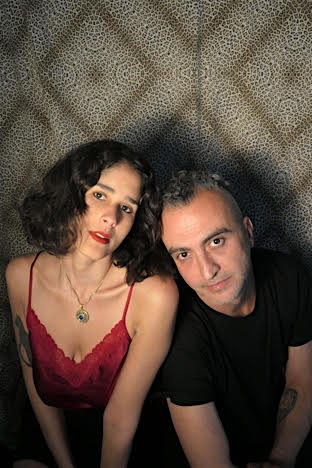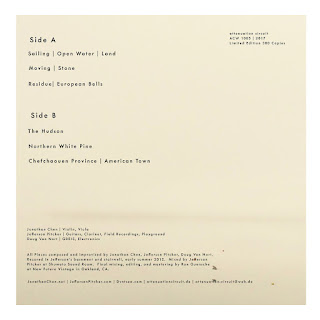Interview with Tony Elieh - member of Los Panteros
I spoke with Tony Elieh, one of the protagonist of Los Panteros duo which he creates with Aya Metwalli.
Los Panteros is the offspring of composer/bassist Tony Elieh and songwriter/vocalist Aya Metwalli. It was born within the framework of Irtijal music festival where the duet was commissioned to play an improv that was filmed and shown during Irtijal festival, Berlin edition in 2020. The project was developed during a residency within the framework of the Phonetics festival in St. Denis in France, then finalized and debuted at Morphine Raum in Berlin after the project was granted the Musikfonds e.V. by the German Federal Government Commissioner for Culture and Media (BKM). Metwalli is essentially a melodist who grew up listening to and being trained to sing a vast repertoire of classical Egyptian music. When she bloomed and expanded her sound palette, she started deviating from the correct notes and exploring the in-betweens of the microtones of Arabic scales and modes, ever so flirting between consonance and dissonance. Elieh is essentially a rhythm beast who in his early career cofounded Scrambled Eggs; one of the most prominent punk bands in Lebanon. He then further explored his instrument and grew into a bass-bender who prances between rhythm, heavily melodic bass lines, dense textures and complete deconstruction of tune with the help of electronics. Joining forces, they play a set of bass, voice and electronics that crochets melody, atonal textures, rhythm and the absence of time signatures.
1. Every artist and musician had what l call a “formation phase” where a blend of ideas,
experience as a listener and will to get into action helped to start the activity in music.
What was that and by whom and what were you inspired by?
As a young musician I was so inspired by punk, grunge and heavy metal music, these
were the genre that I use to listen too as 14 years old. With times and after meeting
other musicians or music enthusiasts, I started to discover other genre, such as
Krautrock, free jazz and free improvisation and delved myself in the listening of projects
such as Can, Faust, Neu, John Coltrane, Pharaoh Sanders etc…
2. The current status of recorded music in terms of distribution is an uneasy one. How
do you feel about this?
I am completely lost honestly, and I think it’s the same for other musicians, there’s no
clear way anymore of how to do things. I think we are in a phase of improvising with
what is available, and to make sure that our projects are released in some way and they
are out there, not stocked on our computers. Difficult times for musicians and labels.
3. How did you start your collaboration and how it all come to fruition in terms of music
that you composed?
Me and Aya collaborated on a previous project with 2 other Lebanese musicians from
Beirut, Sharif Sehnaoui and Malek Rizkallah. The project’s name is Calamita with Aya
Metwali and the album’s name was Al Saher. The project was more in the avant guard,
free rock, focusing on tarabs songs and some melodies.
After that me and Aya were asked to perform as a duo for Irtijal Festival in Berlin, and
since we liked the duo collaboration we decided to develop it further more. After a
residency in Paris, we had the chance to get a fund to work on an album. So Aya came
to Berlin, we managed to compose the album in 2 weeks and play it live at Morphine
Raum.
4. How the life of a musician in Lebanon and Egypt and Berlin looks like these days?
Nothing looks good these days, not only for musicians. We are trying to survive and be
political as much as we can.
5. It is not difficult to put your music in a political context but how would you like it to be
seen?
Frankly, as an Arab living in Europe right now, I am afraid to speak about my political
views, or even my opinion. Even though I am outspoken, but always cautious.
But also, I find it really important to be here in Berlin at the moment. The other side of
the story needs to be told, and that’s what we are trying to do.
6. What are the compositional ideas you are using for the creative process in your
music?
As a musician who comes from different musical backgrounds, I always try to includes
these backgrounds in my compositional process, trying to put some ideas that might not
go together in one piece. Of course, there’s too many ways that I use, but also it
depends on the project that I am working on. But if I want to summarize my process I
would say using different musical backgrounds.
7. Plans for the future?
I’ve been working and developing more than one project since I moved to Berlin, and
this year a lot of them got released and more to come in the next year.
As for Los Panteros, nothing is planned yet, we are happy that the album got released
and now we are waiting for what to do as a next step.
archipeleditions.bandcamp.com/album/24-ribs


Comments
Post a Comment